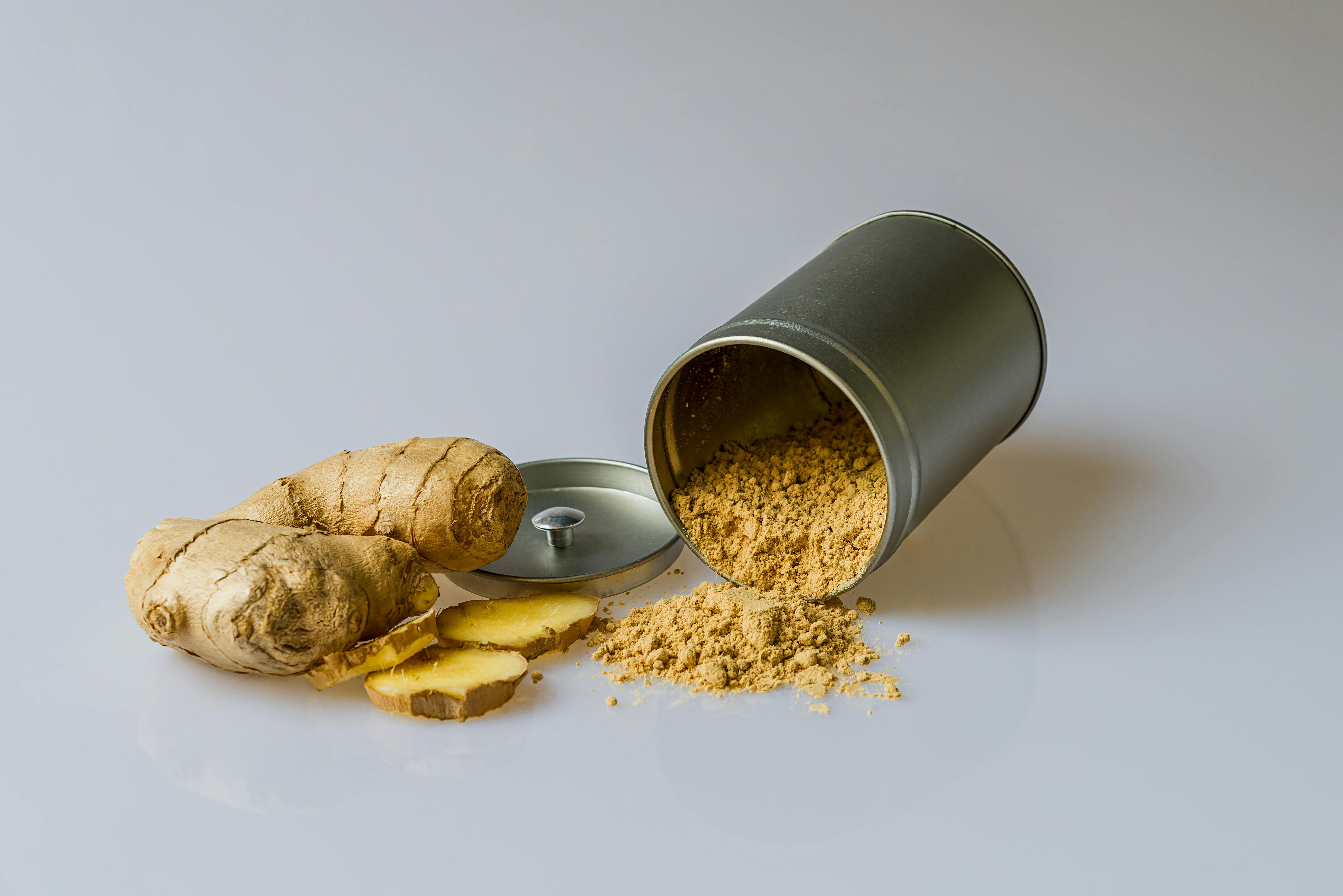Discover the incredible health benefits of ginger! From reducing inflammation and relieving muscle pain to boosting digestion and enhancing brain function, ginger is a versatile herb with numerous advantages. Explore 11 amazing benefits of ginger and its impact on overall wellbeing.
Ginger, a widely used spice and medicinal herb, offers a plethora of proven health benefits that have been recognized for centuries. From reducing nausea and promoting digestion to relieving muscle pain and enhancing brain function, ginger’s remarkable properties have been studied extensively, providing a wealth of evidence for its contribution to overall wellbeing. Whether consumed in its raw form, powdered, or as an ingredient in various dishes and drinks, ginger’s diverse advantages make it a versatile herb with significant potential for improving one’s health. In this article, you will explore eleven amazing health benefits of ginger, gaining valuable insights into its remarkable impact on our bodies.

Reducing Inflammation
Anti-inflammatory properties of ginger
Ginger is well-known for its powerful anti-inflammatory properties. It contains a compound called gingerol, which has been shown to inhibit the production of inflammatory chemicals in the body. By reducing inflammation, ginger can help to alleviate symptoms of various inflammatory conditions such as arthritis, osteoarthritis, and rheumatoid arthritis. Studies have shown that ginger can effectively reduce pain and swelling associated with these conditions, making it a valuable natural remedy.
Managing symptoms of arthritis
Arthritis is a condition characterized by inflammation and stiffness in the joints. Ginger has been found to be effective in managing the symptoms of arthritis due to its anti-inflammatory properties. It can help to reduce joint pain, swelling, and stiffness, allowing for improved mobility and quality of life. Adding ginger to your daily routine can provide relief and support in managing the symptoms of arthritis.
Relieving muscle soreness
Muscle soreness is a common complaint, especially after intense physical activity. Ginger can help to alleviate muscle soreness by reducing inflammation and promoting blood flow to the muscles. It has been found to be particularly effective in reducing delayed onset muscle soreness (DOMS), which occurs 24-72 hours after exercise. Including ginger in your post-workout routine can help speed up recovery and reduce muscle soreness, allowing you to perform at your best.
Boosting Digestive Health
Relieving nausea and vomiting
Ginger has long been used as a natural remedy for nausea and vomiting. It has been found to be particularly effective in relieving symptoms of motion sickness, morning sickness during pregnancy, and chemotherapy-induced nausea. Ginger works by increasing the movement of the digestive system, reducing the sensations of nausea and preventing vomiting. It is a safe and natural alternative to traditional anti-nausea medications.
Improving digestion
Ginger has been shown to improve digestion by increasing the production of digestive enzymes and stimulating the activity of the gastrointestinal tract. It can help to relieve symptoms of indigestion, bloating, and flatulence. Ginger has also been found to be effective in reducing inflammation in the gut, which can be beneficial for individuals with inflammatory bowel disease or other digestive disorders. Adding ginger to your meals or consuming it as a tea can support healthy digestion and prevent digestive discomfort.
Preventing stomach ulcers
Stomach ulcers are painful sores that develop on the lining of the stomach. They can be caused by various factors, including the bacteria Helicobacter pylori and the prolonged use of nonsteroidal anti-inflammatory drugs (NSAIDs). Ginger has been found to have anti-ulcer properties, protecting the stomach lining against damage and reducing the risk of developing ulcers. By promoting a healthy stomach environment and reducing inflammation, ginger can contribute to the prevention and management of stomach ulcers.
Enhancing Immune System
Strengthening the immune system
A strong immune system is essential for fighting off infections and maintaining overall health. Ginger has immune-boosting properties that can help to strengthen the immune system. Its antioxidant compounds, such as gingerol and zingerone, can enhance the function of immune cells and increase their ability to fight against pathogens. Regular consumption of ginger can support a healthy immune system and reduce the risk of infections.
Fighting off common cold and flu
Ginger has long been used as a natural remedy for respiratory infections such as the common cold and flu. It has antimicrobial properties, which can help to kill or inhibit the growth of viruses and bacteria. Additionally, ginger can help to alleviate symptoms of respiratory infections by reducing inflammation in the airways and promoting mucus clearance. Drinking ginger tea or adding ginger to soups and stir-fries during the cold and flu season can help to boost your immune system and speed up recovery.
Lowering Blood Sugar Levels
Regulating blood glucose levels
Maintaining stable blood sugar levels is crucial for overall health, especially for individuals with diabetes. Ginger has been found to have a regulatory effect on blood glucose levels. It can increase insulin sensitivity, improve glucose metabolism, and inhibit enzymes involved in the breakdown of carbohydrates. These effects can help to regulate blood sugar levels and prevent sudden spikes or drops in blood glucose. Adding ginger to your meals or consuming ginger extract can be a beneficial addition to a diabetic-friendly diet.
Managing diabetes
In addition to regulating blood sugar levels, ginger can also offer additional benefits for individuals with diabetes. Studies have shown that ginger can reduce markers of inflammation and oxidative stress, which are often elevated in individuals with diabetes. Furthermore, ginger has been found to improve various aspects of diabetic complications, including kidney function and cardiovascular health. Including ginger in your diabetes management plan can provide supplementary support for better overall health.

Supporting Cardiovascular Health
Reducing blood pressure
High blood pressure is a major risk factor for cardiovascular disease. Ginger has been found to have blood pressure-lowering effects, making it beneficial for individuals with hypertension. The compounds present in ginger can help to relax and expand blood vessels, improving blood flow and reducing the strain on the heart. By including ginger in your diet, you can support healthy blood pressure and reduce the risk of cardiovascular complications.
Improving cholesterol levels
Abnormal cholesterol levels, particularly high levels of LDL cholesterol (bad cholesterol), can contribute to the development of heart disease. Ginger has been shown to have cholesterol-lowering effects, helping to reduce LDL cholesterol levels and increase HDL cholesterol (good cholesterol) levels. This can contribute to better heart health and reduce the risk of cardiovascular problems. Incorporating ginger into a heart-healthy diet can support optimal cholesterol levels and promote cardiovascular well-being.
Aiding Weight Loss
Boosting metabolism
Ginger has the potential to boost metabolism, which can aid in weight loss efforts. Studies have found that ginger can increase the thermic effect of food, meaning it can help to increase the number of calories burned during the digestion and absorption of nutrients. Additionally, ginger can suppress appetite and reduce cravings, leading to decreased calorie intake and better adherence to a weight loss plan. Including ginger in your weight loss regimen can provide an additional support to achieve your goals.
Reducing appetite and cravings
One of the biggest challenges in weight loss is managing appetite and cravings. Ginger can be a valuable tool in this aspect, as it has been found to reduce hunger and cravings. Consuming ginger can help to increase feelings of fullness, reduce the desire to snack on unhealthy foods, and control overall calorie intake. Adding ginger to meals or consuming ginger tea between meals can help to curb appetite and support better portion control, ultimately promoting weight loss.

Improving Brain Function
Enhancing cognitive performance
Ginger has been found to have cognitive-enhancing properties, improving various aspects of brain function. It can enhance memory, attention, and overall cognitive performance. The antioxidants present in ginger can protect brain cells from oxidative stress and inflammation, which are known to contribute to age-related cognitive decline. By incorporating ginger into your diet, you can support optimal brain function and maintain cognitive health as you age.
As we age, cognitive decline becomes a common concern. Ginger has been shown to have neuroprotective effects, protecting against age-related cognitive decline and neurodegenerative diseases such as Alzheimer’s disease. The anti-inflammatory and antioxidant properties of ginger can help to reduce oxidative stress and inflammation in the brain, preserving brain function and potentially slowing down the progression of cognitive decline. Regular consumption of ginger can be a beneficial addition to a brain-healthy lifestyle.
Relieving Menstrual Pain
Alleviating menstrual cramps
Menstrual cramps, also known as dysmenorrhea, can cause significant discomfort and pain during menstruation. Ginger has been found to have pain-relieving properties, making it an effective natural remedy for alleviating menstrual cramps. The anti-inflammatory properties of ginger can help to reduce the production of inflammatory chemicals in the body, which contribute to the pain and discomfort associated with cramps. Consuming ginger tea or taking ginger supplements can provide relief and improve the overall experience of menstruation.
Reducing other symptoms of menstruation
In addition to menstrual cramps, ginger can also help to alleviate other symptoms associated with menstruation. These may include bloating, mood swings, and fatigue. Ginger’s anti-inflammatory and analgesic properties can help to reduce bloating and water retention, while its mood-enhancing effect can improve emotional well-being. Consuming ginger regularly during the menstrual cycle can provide relief from multiple symptoms and support overall menstrual health.
Alleviating Respiratory Issues
Easing asthma symptoms
Asthma is a chronic respiratory condition characterized by inflammation and constriction of the airways. Ginger has been found to have bronchodilatory properties, meaning it can help to relax and open up the airways, making it easier to breathe. It can also reduce inflammation in the airways, alleviating symptoms such as wheezing, coughing, and shortness of breath. Adding ginger to your diet can provide supplementary support in managing asthma symptoms and improving respiratory function.
Relieving respiratory infections
Respiratory infections such as the common cold, flu, and bronchitis can cause discomfort and distress. Ginger can help to alleviate symptoms of respiratory infections by reducing inflammation in the airways and promoting mucus clearance. Its antimicrobial properties can also contribute to fighting off the underlying infection. Consuming ginger tea or adding ginger to soups and other warm drinks can help to relieve respiratory symptoms and support a faster recovery.
Providing Antioxidant Support
Neutralizing free radicals
Ginger contains a wide range of antioxidant compounds that can help to neutralize harmful free radicals in the body. Free radicals are unstable molecules that can cause cellular damage and contribute to the development of chronic diseases. Ginger’s antioxidant properties can protect cells from oxidative stress and reduce the risk of chronic diseases such as cancer, heart disease, and neurodegenerative disorders. Regular consumption of ginger can provide valuable antioxidant support for overall health and well-being.
Protecting against chronic diseases
Chronic diseases, such as cancer, heart disease, and diabetes, are major health concerns worldwide. Ginger’s antioxidant and anti-inflammatory properties can help to protect against these diseases by reducing inflammation and oxidative stress, two key factors in their development. Ginger has been shown to have a protective effect against various types of cancer, cardiovascular problems, and metabolic disorders. Adding ginger to your diet can be a proactive step towards reducing the risk of chronic diseases and promoting long-term health.
In conclusion, ginger offers a multitude of health benefits that can support various aspects of well-being. From reducing inflammation and alleviating pain to enhancing digestion, boosting the immune system, and protecting against chronic diseases, ginger is a versatile and valuable addition to a healthy lifestyle. Incorporating ginger into your daily routine through meals, teas, or supplements can provide you with the potential health advantages and contribute to your overall wellness.


